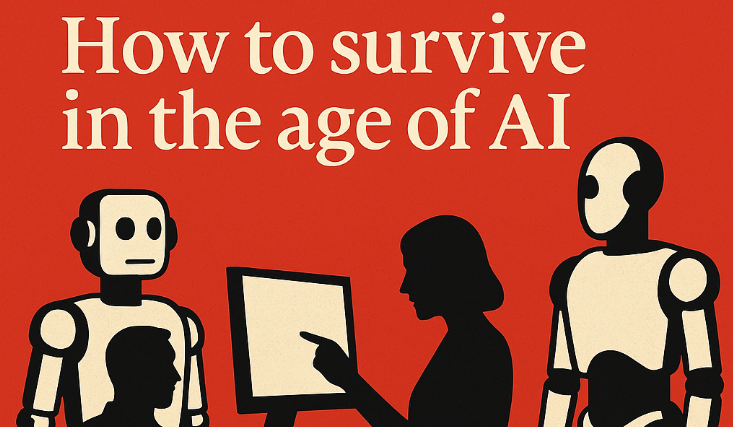How Humans Can Survive—and Thrive—in the Age of AI

In 2025, we stand on the edge of the most profound transformation since the Industrial Revolution. Artificial Intelligence, led by large language models and autonomous agents, is no longer a future concept — it’s here, embedded in our phones, workplaces, and homes. The AI revolution won’t be televised. It will be automated.
The burning question isn’t whether AI will replace humans. It already is, task by task. The real question is: What will humans do next?
Three Human Roles in the AI Age
If we project forward, society may stratify into three broad categories:
1. The AI-Served (or AI-Controlled) Majority
Most people will be users, even dependents, of AI systems. They will shop, learn, work, and socialize through AI-powered intermediaries. Algorithms will influence their decisions, curate their realities, and even manage their schedules. For many, AI won’t just be a tool — it will be an unseen boss.
2. The AI-Enhanced Operators
A smaller group will learn how to work with AI — not just use it passively, but actively engage it to solve problems, build businesses, and amplify creativity. These people will know how to ask good questions, iterate with machines, and spot when AI gets it wrong. They won’t code the algorithms, but they’ll master the art of leverage.
3. The AI Architects
The rarest class will be those who build, control, or own the AI systems — scientists, engineers, and capitalists. They will shape the foundation models, write the guardrails, and decide who gets access. In an AI-shaped economy, they will define the rules of engagement.
The Human Superpowers That Still Matter
Despite the power of AI, certain skills remain irreplaceable — for now.
-
The ability to ask the right question clearly. The quality of AI output depends entirely on input. Knowing what to ask — and how — is the new literacy.
-
Judgment and decision-making. AI can process more data than any human, but it doesn’t understand context, ethics, or consequences the way humans can — and must.
-
Skepticism. Blind trust in AI is dangerous. We need people who can spot when the machine is wrong and act accordingly.
-
Empathy and values. AI lacks a soul. Humans must remain the moral compass of an increasingly automated world.
How to Survive (and Thrive)
The good news? You don’t need to be a PhD or billionaire to thrive in this new era. But you do need to:
- Learn to communicate with machines — prompt engineering is the new spreadsheet.
- Build a habit of critical thinking — don’t just ask what, ask why.
- Stay human — cultivate curiosity, creativity, and conscience. These are not yet programmable.
In the coming years, the gap won’t just be between rich and poor — it will be between those who can collaborate with AI and those who are managed by it.
Which side will you be on?